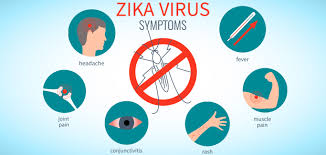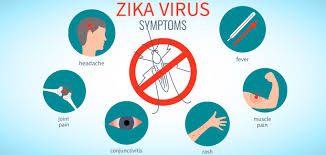
In recent months, Pune City has been grappling with a notable public health challenge: the emergence of Zika virus infections. Since June, a total of 66 cases have been reported, raising significant concern among health authorities, residents, and public health experts. This article provides an in-depth examination of the situation, exploring the implications for the city, the response of health authorities, and the broader context of Zika virus transmission.
Understanding the Zika Virus
The is a mosquito-borne virus primarily It was first identified in Uganda in 1947 and transmitted through the bite of infected Aedes mosquitoes, particularly Aedes aegypti. parts of the world. The virus is known for causing mild symptoms in most individuals, including fever, rash, joint pain, and conjunctivitis. However, the virus has garnered widespread attention due to its association with severe birth defects, such as microcephaly, when pregnant women are infected. has since spread to various
The recent outbreak in Pune underscores the persistent threat of Zika virus and the challenges associated with its control. The city’s dense population and tropical climate create an environment conducive to mosquito breeding, making it a potential hotspot for Zika transmission.
The Current Situation in Pune
Since June, Pune has reported 66 cases of Zika virus infection, marking a concerning uptick in infections. The rise in cases has been attributed to several factors, including climatic conditions, urbanization, and challenges in mosquito control measures. Health authorities have been actively monitoring the situation and implementing various measures to contain the spread of the virus.
The cases reported in Pune have prompted a detailed investigation into the source and spread of the virus. Health officials are conducting surveillance to identify and mitigate potential hotspots, and efforts are underway to improve mosquito control measures and public awareness.
Table of Contents
Public Health Response
In response to the outbreak, the Pune Municipal Corporation (PMC) and the Maharashtra State Health Department have initiated several measures to address the situation. These include:
- Mosquito Control Measures: The authorities have intensified efforts to control mosquito populations. This includes increased fogging operations, elimination of mosquito breeding sites, and public education campaigns on preventing mosquito bites.
- Surveillance and Testing: Health officials are conducting rigorous surveillance to track the spread of the virus and identify new cases. Testing facilities have been expanded to ensure timely diagnosis and reporting of infections.
- Public Awareness Campaigns: Educating the public about Zika virus prevention is crucial. Health authorities are disseminating information about the importance of using mosquito repellents, wearing protective clothing, and maintaining clean surroundings to reduce mosquito breeding.
- Coordination with Health Organizations: Local health authorities are coordinating with national and international health organizations for technical support, guidance, and resources to manage the outbreak effectively.
Challenges in Containing the Outbreak
Despite the efforts to control the outbreak, several challenges complicate the containment of the Zika virus in Pune:
- Urbanization and Population Density: Pune’s rapidly growing population and urbanization present significant challenges for mosquito control. High-density areas often have limited space for effective mosquito breeding site elimination.
- Climate Factors: The tropical climate of Pune is conducive to mosquito breeding, with monsoon rains providing ideal conditions for mosquito larvae development. This climatic factor complicates efforts to control mosquito populations.
- Public Compliance: Ensuring public compliance with preventive measures is critical but challenging. Public education campaigns must effectively convey the importance of mosquito bite prevention and the need for community participation.
- Surveillance and Resource Constraints: Effective surveillance requires substantial resources and infrastructure. Ensuring adequate resources for testing, monitoring, and mosquito control can be a challenge, especially in the context of a growing outbreak.
Broader Context and Implications
The Zika virus outbreak in Pune highlights the broader challenges of managing vector-borne diseases in densely populated urban areas. It serves as a reminder of the need for robust public health infrastructure, timely response strategies, and community engagement in disease prevention efforts.
The implications of the outbreak extend beyond immediate health concerns. The presence of the Zika virus in a city like Pune can affect public perception, influence travel patterns, and impact local and national health policies. It also underscores the importance of global cooperation in addressing vector-borne diseases, as these issues are not confined by national borders.Zika Virus
Historical Context of Zika Virus in India
India has seen sporadic cases of Zika virus infections in the past. The country experienced a notable outbreak in Kerala in 2017, which was subsequently controlled through intensified public health measures. The Pune outbreak marks a significant development in the current context, emphasizing the need for vigilance and preparedness to prevent further spread.
Future Outlook and Prevention
The situation in Pune necessitates ongoing vigilance and adaptability in public health response. Key strategies moving forward include:
- Enhanced Surveillance: Continued monitoring and data collection are crucial to understanding the spread of the virus and evaluating the effectiveness of control measures.
- Strengthened Mosquito Control: Persistent efforts to control mosquito populations, including community engagement and environmental management, are essential for reducing transmission.
- Public Education: Sustained public education campaigns are needed to ensure that residents understand the risks and preventive measures associated with Zika virus.

Conclusion
The discovery of 66 cases of Zika virus infection in Pune City since June represents a significant public health challenge. The response from health authorities, including intensified mosquito control measures, surveillance, and public education, reflects the seriousness of the situation. Addressing the outbreak requires a comprehensive approach that includes both immediate actions and long-term strategies to manage and prevent the spread of the virus.Zika Virus
As Pune navigates this outbreak, the lessons learned will be valuable for improving public health responses to vector-borne diseases in the future. Collaboration among health authorities, community members, and international organizations will be crucial in safeguarding public health and ensuring a resilient response to emerging health threats.







